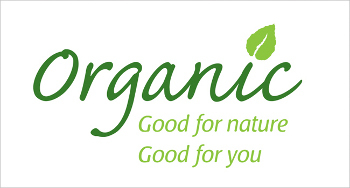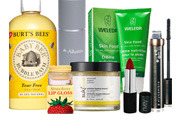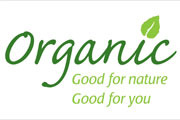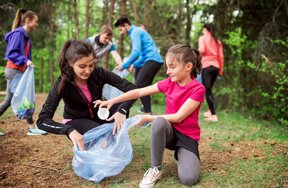Earth Day is almost here and there are lots of ways to help the environment in your everyday life just by watching what you buy! With so many different terms for eco-friendly stuff, it can be confusing, find out the difference in Organic Vs. Green!
 Organic food isn't treated with pesticides and chemicalsCourtesy of mediaindigena.com
Organic food isn't treated with pesticides and chemicalsCourtesy of mediaindigena.com
What Does “Organic” Mean?
Going green has never been more popular, but with so many different terms it’s easy to get turned around, and there are loads of companies out there happy to get on the bandwagon without necessarily taking out the chemicals. For us everyday shoppers the word “Organic” and better yet “Certified Organic” means a product or food meets certain environmental standards – meaning a guarantee of less harsh chemicals and pesticides. Anything labeled “Certified Organic” – whether it’s an apple, dish soap or even clothing – must be approved by the USDA. If they have the words “Fair Trade” in there, even better! That means that they also promise to pay workers overseas a fair wage! Everyone wins: you, the workers and the environment!
 Organic products need to meet USDA standards
Organic products need to meet USDA standards
What Does “Green” Mean?
Making your product completely organic can be expensive, which is why you might notice that the price on your fave organic things is higher than regular brands. Many companies opt to simply make their products more natural, swapping out some chemical ingredients for environmentally-friendly ones. Too bad for us some companies have realized that claiming a product is “green” is a way to sell more, but unlike “Certified Organic” there’s no rule saying that you can’t use the word, even if your product isn’t! Take a careful look at the list of ingredients on these ones. All Natural and 100% Natural are usually better bets (but still not as good as Organic!) If an ingredient on the back looks like a chemical – it probably is.
 Greenwashing means making a product sound eco-friendly when it isn't!Courtesy of Care2.com
Greenwashing means making a product sound eco-friendly when it isn't!Courtesy of Care2.com
Green Shopping Terms
Here are a few other terms used for green products that you may come across:
- Biodegradable: Organic and Natural cleaners are often also biodegradable, meaning that once the suds have gone down the drain they’ll break down and return to nature – a good sign for a green shopper!
- Natural: Not as strictly regulated as “Organic,” but the label Natural does mean that the product meets some USDA standards.
- SLS Free: SLS stands for Sodium Lauryl Sulphate (don’t worry, we won’t make you say it five times fast!) This compound is in many household cleaners, but is known to cause skin and eye irritations.
- Paraben Free: Parabens are chemicals often used in makeup, toiletries and even sunscreen, but studies have linked it to cancer (yikes!)
- Vegan: No animals products are in involved in the making of the product
- Gluten-Free: Many people have gluten allergies, which means no wheat (like bread and pasta) but gluten is used in tons of products.
Have Your Say
Do you buy organic products? Let us know in the comments section below!

































